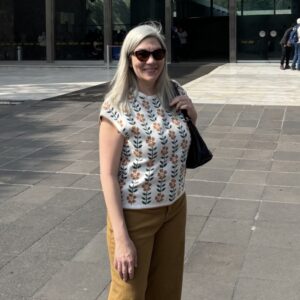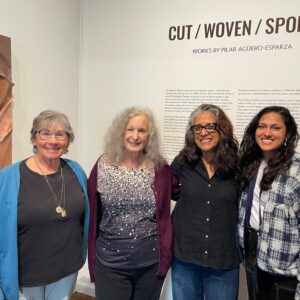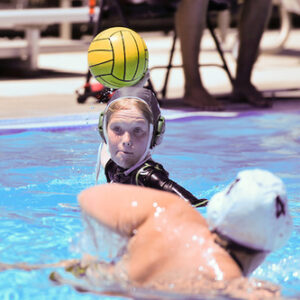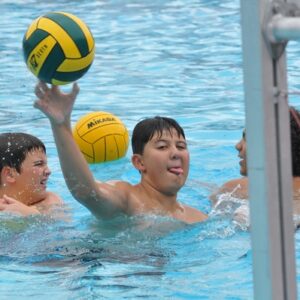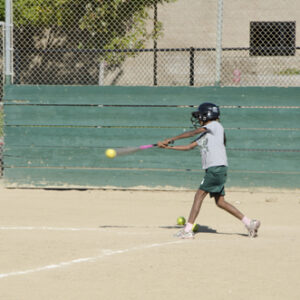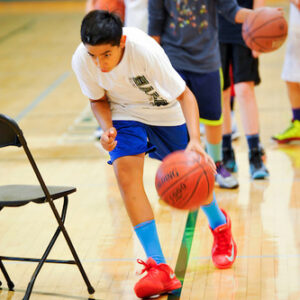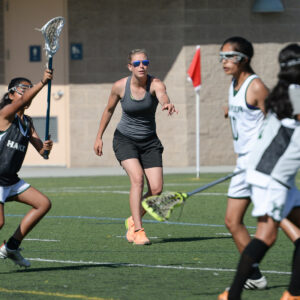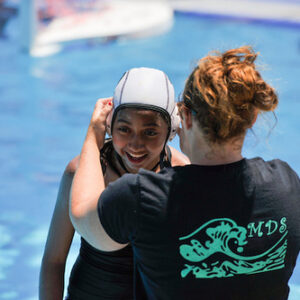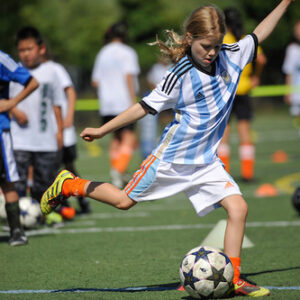This article was originally published in the fall 2012 Harker Quarterly.
Harker’s wide variety of first-rate sports programs kept student athletes busy over the summer. The camps offered students the opportunity to learn a new sport or improve their skills in a sport they had already taken up.
The one-week water polo camp, directed by Ted Ujifusa, primarily stressed fundamental skills such as movement and passing. After gaining some experience with these skills, the students were later organized into groups to play games.
Meanwhile, Harker’s summer soccer program for students in grades 5-12 proved popular with both beginners and experienced players. Students worked on various skills at a number of stations devoted to each skill, including juggling, dribbling and one-on-one matchups. “We make it fun, but we make sure that it’s not just day care, that this is a soccer camp where kids are leaving knowing that they learned something,” said Harker soccer coach and program head Shaun Tsakiris.
Over at the Oakwood Tennis Center, tennis coach Craig Pasqua ran Harker’s comprehensive summer tennis programs for grades 2-11, the Harker Summer Tennis Camp (HSTC) and the Harker-Oakwood Tennis Training System (HOTTS). HSTC taught fundamental skills for new and developing players while also introducing the rotational approach favored by most of today’s professional players. For competitive players interested in the more advanced aspects of the sport, HOTTS prepared students for in-game situations and had them play interclub matches.
Butch Keller, upper school head, ran the summer basketball camp, which sought to equip grade 4-8 boys with the skills necessary to take the next step. “It’s all about things that they can do to improve their game at their age,” Keller said. As at other camps, stations were set up to help students work on individual skills. Students also learned things they could work on at home during TV commercial breaks.
For those not focusing on any particular sport, head football coach Ron Forbes’ sports performance camp for grades 6-12 helped students improve as overall athletes. Concepts such as resistive sprinting, overspeed sprinting and core strength were taught at the camp, which Forbes said had many students in grades 6-8 due to its focus on developing athletes instead of preparing for an upcoming season. “Most of these kids now, we’re not getting them ready for the season,” he said. “We’re helping develop them into athletes at a younger age.”




